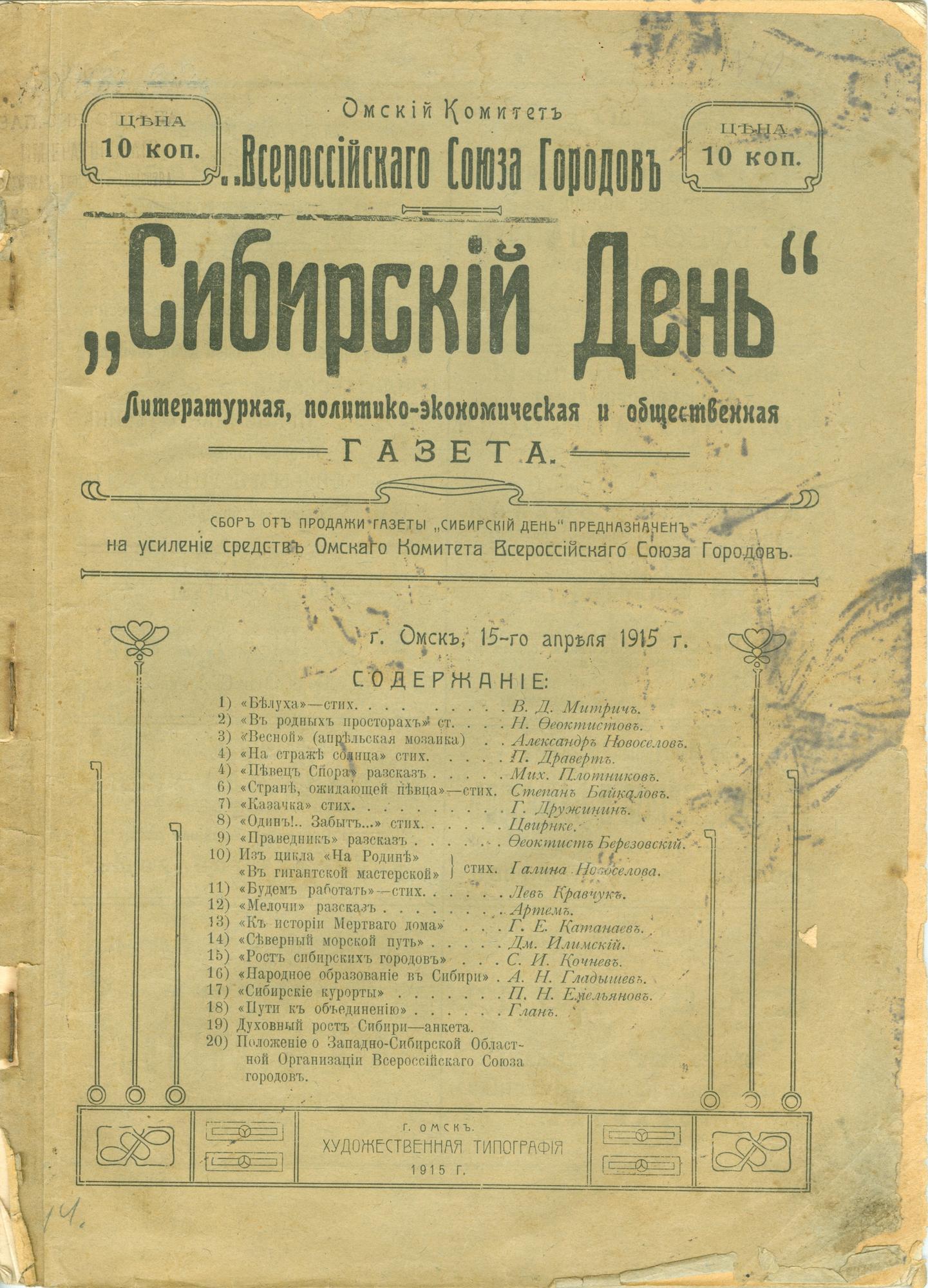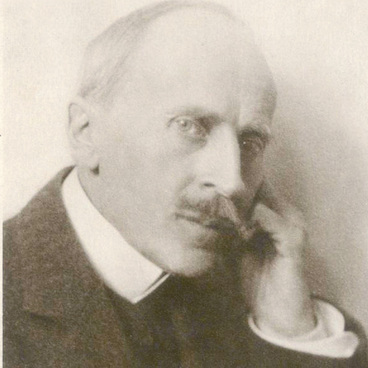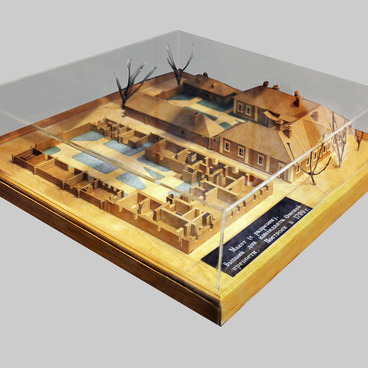1915 saw the publication of the two issues of the Omsk newspaper on literature, politics, economy, and social life ‘Sibirsky Den’ (Siberian Day) by the All-Russian Union of Cities. The All-Russian Union of Cities was established in August 1914 during the All-Russian Congress of Representatives of Cities in Moscow upon the initiative of the Moscow City Council. It was one of the largest public organizations assisting the government in providing medical help and accommodation to refugees during World War One.
According to the Royal Decree of Emperor Nicholas the Second, the activities of the Union were limited to the homefront. However, despite the Decree, the Union was active in the field as well. The Union comprised 464 governorate and district towns and cities (about a half of all towns and cities in Russia at the time). Some of them established local committees which would later be unified into regional ones. The Union’s major regulatory authority was the congress consisting of representatives of municipal government institutions. Since 1915, the Union’s local branches, congresses, and press bodies were extensively used by the liberal oppositionists to propagate the idea of local governance.
The Sibirsky Den newspaper highlighted the results of the first congress of representatives of West Siberian cities. The congress took place in Omsk on April 11–13, 1915. The problems of providing support to soldiers and refugees and the essentiality of establishing a county in Siberia were widely considered. The newspaper covered a great diversity of subjects. Among those who supported the idea of a county were heads of Novonikolayevsk, Omsk, and Tyumen, as well as prominent financiers Buyanovsky and Podshivalov.
Apart from the provision of the West Siberian region structure of the All-Russian Union of Cities, materials on the region’s public education, growth of cities, and Siberian resorts were also published in the newspaper. Sibirsky Den featured works by Omsk writers FeoktIst BerezOvsky, Ant щn Novosyolov, Nikolai FeoktIstov, and others. Georgy KatanAyev, social activist and historian with a specialty in the Sioerian Cossack army, presented the article “On the history of the “House of the Dead, ” dedicated to the Omsk prison.



